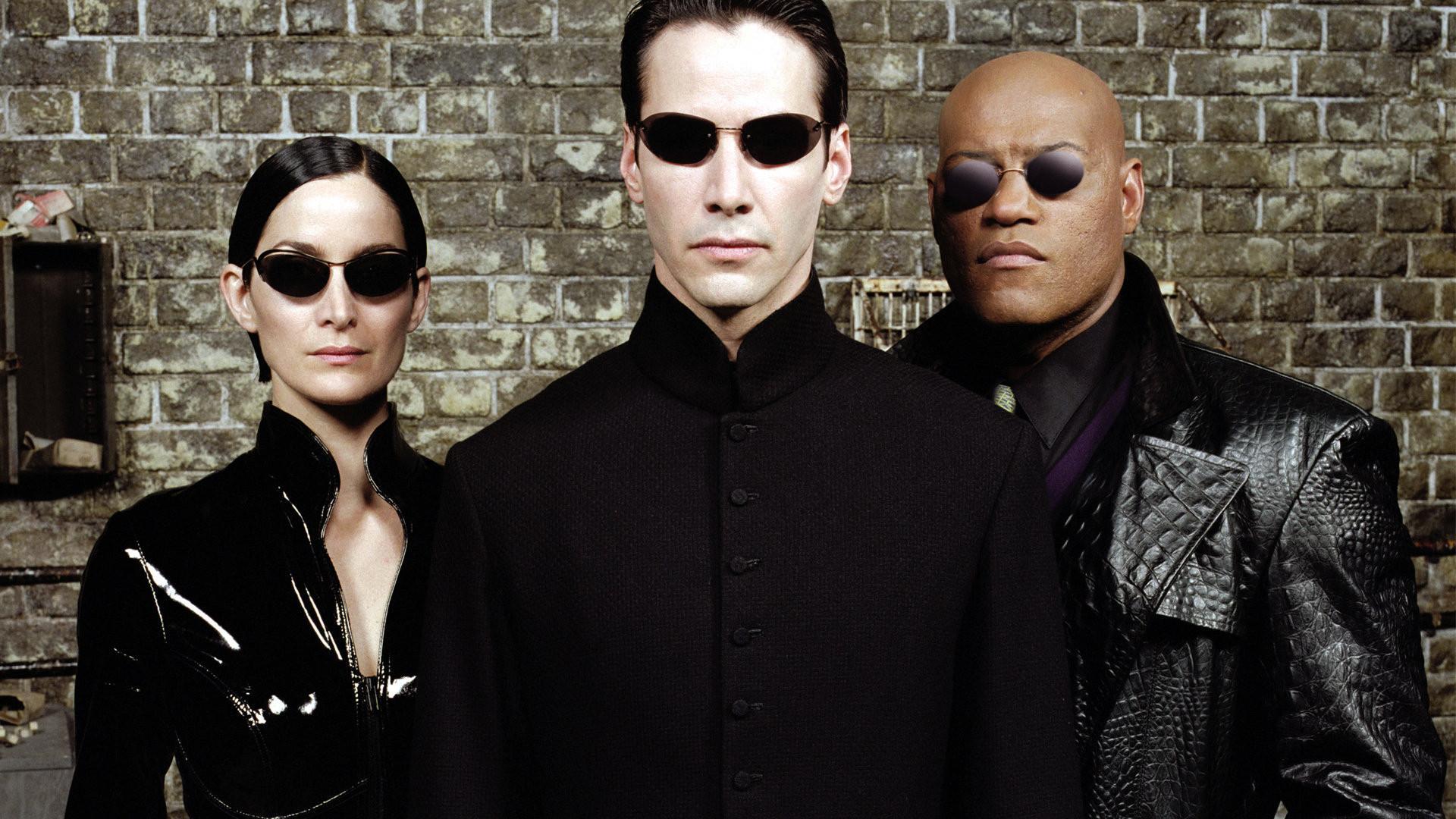News Headlines
The Top 3 Latino Films of 2023
01.5.2024My Top Films of 2022 on PIX 11 News
12.20.2022West Side Story (Movie Review)
12.2.202107.1.2017 | By Jack Rico |
Today, we’re delving into the ending of ‘Beatriz at Dinner‘ as explained by Puerto Rican director Miguel Arteta in our exclusive Q&A. But before we address that big elephant in the room, I had the chance to interview Mr. Arteta, for our Highly Relevant podcast, and I asked him several questions, close to 20 minutes in total, which spawned some memorable answers about his Puerto Rican heritage, the Latino experience in America, Salma Hayek’s business prowess, that controversial movie ending, and how he believes without a doubt, The Matrix is the first multicultural blockbuster film created in Hollywood.
In this article, we decode the ‘Miguel Arteta Beatriz at Dinner Ending’, offering insights into the director’s choices. This Q&A has been edited for clarity.
Jack Rico (JR): How do you identify yourself? As an American, Puerto Rican, or Spaniard?
Miguel Arteta: I see myself as Puerto Rican. Growing up, people didn’t recognize me as Puerto Rican due to my Peruvian/Spanish mixed accent, which differs from the Puerto Rican accent.
JR: How does Hollywood perceive you?
Arteta: I think my status as an outsider has helped me be a storyteller. Now the fact that when I grew up in Puerto Rico, people didn’t think of me as Puerto Rican, you know, I sort of have been, I like, always been on the outside looking in. And I think that’s helpful for telling stories, because, the reason I think we tell stories as humans, way back from when we started doing it around the campfire, is you’re less alone. You feel more connected to each other. And so, people who are outsiders tend to be people who are yearning to be more connected. And I think it helps to tell a story.
JR: How much of who you are is connected in any way with this film?
Arteta: I feel very connected to “Beatriz at Dinner.” It is really a movie in which we wanted to give the audience the feeling of what it’s like to be an immigrant and an outsider. Somebody that’s yearning for a better place and better times, and caught in a place where they cannot get that.
JR: Did you feel in any way that that was you?
Arteta: Definitely, for sure. The feeling that she has to want to try and do good but is frustrated that she can’t, and that like, she’s living in a place where there are people that she disagrees with who have power over her. It’s a feeling that I feel just as a citizen here in the United States. But you know, the way that that movie works, is that Beatriz and Doug Strutt, who John Lithgow plays his character – also does have the strength and conviction that probably no human being has.
They truly, truly, truly believe in compassion and greed. And they both feel very compelled to think that they have good reasons for what they do. And I think that the other dinner party guests are more like the rest of us, which is like, we like to think of ourselves as good people. We recycle, but really, if you were to take our good life away, we would not be down for it.
JR: Many have called this film the first movie of the Trump era. Do you see it that way? How would you describe the tone of this film?
Arteta: I think it certainly is a movie that’s trying to talk about the cultural divide that we’ve been having, and that’s something that we’ve been living through the last forty years, since the sixties. In the sixties and the seventies, it was a time when our culture was at its most generous, where people cared about each other, the rights of workers, and cared about the truth.
And ever since then, you know, consumer society has been dismantling all those priorities, to the point that people really don’t care about the truth nowadays. And people really worship greed, and compassion has very little place in our society. So, the movie is about the cultural shipwreck and divide that we’re in. And the brilliance of Mike White’s script is that he set it in a very casual environment, one that we can all relate to a dinner party. We’ve all been at a dinner party, stuck with somebody that we don’t want to be talking to. So, like, it was a great way to make it entertaining, intense, and relatable, as opposed to just talking about ideas.
JR: The engine of this film to me is its verbal and situational conflicts. Do you feel that films that are dialogue-intensive like this one are met with any resistance in today’s tentpole era?
Arteta: Well, I believe that independent movies are about the courage to respect the truth and honesty. In spite of consumer society wanting corporations to take over everything, including Hollywood, humans still have a yearning to be told a message that’s being told in an authentic and honest way, not with the interests of a corporation. And that’s the brilliance and the reason that people yearn for independent movies is because they are not made at the beck and call of a corporation. We have a yearning for an honest and authentic story, and no matter what’s happening in society, you cannot squelch that.
JR: It’s rare to see a Latina lead in a movie nowadays. Were there any concerns from investors about Salma being your lead? Did they want a white woman, a Black woman lead?
Arteta: Making a movie about a female Latina is definitely hard, and there were no investors. In fact, nobody would – I spent more than a year looking for the money, and nobody would give me the money.
JR: What was the feedback?
Arteta: The feedback was, like, the writing is amazing. This is very interesting, but we would need a very major star in the role of Doug Strutt for this to happen, maybe. And we would give you no money to make it. Because we don’t believe that this movie would be marketable. Nobody said openly, “We don’t believe that movies about Latina women are going to have an audience,” but people were not willing to take the leap.
JR: So how were you able to persuade the people giving you the money to actually give it to you and move forward?
Arteta: I didn’t. Salma Hayek was making a movie with these wonderful Canadian investors, Aaron and Brenda Gilbert, from Bron Pictures. I think there’s a movie called “Drunk Parents” and it’s a comedy with Alec Baldwin, and while she was shooting that, I think she took Aaron out to have tequilas every night before he finally was like, “You know what, I’ll give you the small budget to go make your movie. I like it, I get it, I will do it.”
JR: What does Salma bring to the table as an actress that you don’t see in other actresses?
Arteta: Well, the reason that I love Salma for this part is because, even though she’s known for her glamour and beauty – it’s her intelligence really that I find leads in her life. And also, her empathy and her hard work ethic, and her willingness to tell the truth. She has all these qualities like, if we wanted to represent all the immigrant experience in America, it is not what people think of it. We are not like – easily manipulated – we are hard-working and intelligent and we have a lot more empathy than the culture in general. And we are willing to tell the truth. So her intelligence is very palpable right there in those eyes and that’s what I loved about her playing Beatriz.
Jack: One of the notable moments of the film was its resolution. What did you think of it and have you heard any comments on it?
Arteta: Yeah. Mike and I wanted to have an ending that was unusual, because in studio movies, and sadly also in independent movies, Americans, we have gotten really used to having our ending be predigested for us. And we didn’t want to do that, you know. We love movies from the seventies, like Badlands, where the filmmakers tell you a story, but don’t tell you what to think of it at the end.
Jack: Why is that, Miguel? If you go down the route where you leave an ending open-ended, up to the audience to figure out, to have their self-interpretation of it: A) You’re complicating the audience’s experience. B) they leave the theater with a sense of incompleteness because they don’t know what the truth is. What was the original statement you wanted to make? Why is this type of ending fulfilling and satisfying for you?
Arteta: For me, you think what the movie is about, about the fact that like, you know, compassion almost has no place in this culture. And that like people who feel entitled to abuse power, feel like they have every right to do it and are winning. When I tell people what they think of our ending, and they have a complaint, I always say “Tell me what would be the satisfying, truthful ending. So, we could have offered a pat, bogus sense of hope, and we – probably the movie would have made a lot more money. But if you watch the movie, that’s not the kind of movie – I feel like I have a trust with our audience that we’re having a movie that is funny and is tense but is also very honest about the sense of helplessness that we’re living in.
And I think that to offer a sort of pat ending, or even a false sense of like, control, would have been betraying the character of Beatriz. And we didn’t want to do that. And I also really think it’s important for people, more than ever – we’re trying to make a movie that says our culture has drifted to a place where we don’t think for ourselves. We have allowed consumer society to let us be so pathetic and cynical and have very little outrage about the truth. And the big question is how do you turn this cultural shipwreck around? It’s very hard after – we’ve been bred as consumers. We’re being born being – people tell us “No, no, no – you have got to tell us what to think. We don’t want to think for ourselves. We want to be selfish. We want to do all these things that are very good for buying things.” And so, if you’re going to make a movie that’s lamenting that, you can’t like, spoon-feed an ending. You have to be really like, sorry folks – time for you to start thinking for yourselves.
JR: Have you been getting any Hispanic audience feedback? The reason I say that is because Hispanics are the number one movie-going demographic in the United States. The film is directed by a Hispanic, and the lead is a Hispanic, yet it feels like an American film. Have Hispanics shown interest in the movie and what are their thoughts?
Arteta: Oh, definitely. Latinos understand the movie better, and they have been traveling to movie theaters that they don’t usually go to to see the movie. I think when Latinos see the trailer, they know like, okay here’s a movie that might speak to what it feels like to be an immigrant in this country. And their response has been very moving. Especially Latino women have been coming up to me crying and saying “This really does capture what it feels like to be a Latina in America today.” I mean it’s been almost anywhere because if you’re a Latina in America, you do know what it’s like to feel like, coming face-to-face with people who make decisions for you. And people who feel like you should just accept that. And so, it’s been very, I think that the success that the movie is having is driven by the Latino audiences.
Jack: Speaking of that, CAA put out a new diversity study that said that movies make more money when the cast is at least 30 percent diverse, recently. It was an “L.A. Times” article on it. Did you read it, and if so, what was your reaction to the study?
Arteta: I haven’t read it. But I’ve known that ever since “The Matrix.”
Jack: “The Matrix”?
Arteta: “The Matrix” was the first blockbuster that embraced… like, the success of Keanu Reeves has a lot to do with that he is a little bit like, not totally white, and Laurence Fishburne… it was the first blockbuster movie that in some ways respected Americans, like multicultural background in a way that people really responded to. And it was very clear to me, when those movies came out, that like, all right, we’ve passed the tipping point where Americans as a whole don’t feel white.
Director Miguel Arteta’s insights shed new light on the ending of ‘Beatriz at Dinner’, offering us a deeper understanding of this cinematic work. Hopefully, you do too.










































